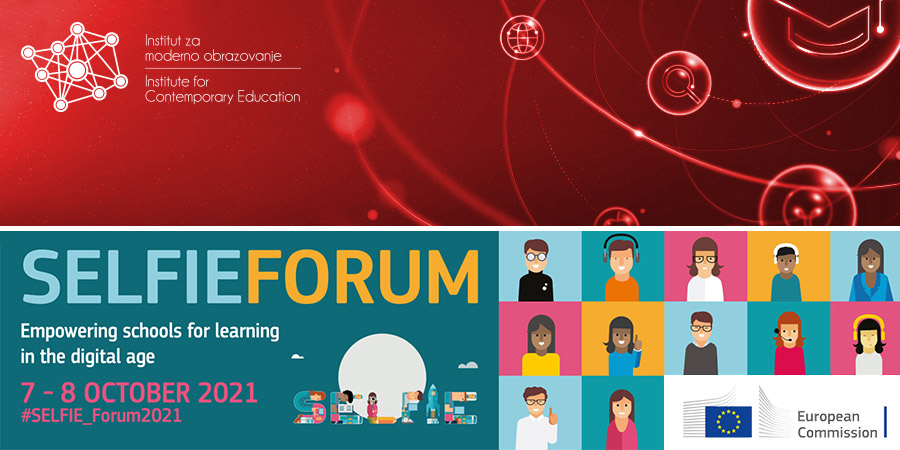
LINK EDUCATIONAL ALLIANCE AMONG THE KEY STAKEHOLDERS IN DIGITAL EDUCATION: SELFIE FORUM 2021
On 7-8 October 2021, the EU Joint Research Centre in association with the Directorate-General for Education, Youth, Sport and Culture, and with the collaboration of the Directorate-General for Employment, Social Affairs and Inclusion, organised the second SELFIE Forum and brought together the SELFIE community. The event was attended by school leaders, teachers, students, trainers, national coordinators, policymakers, researchers, practitioners and future potential users, who were able to learn more about the new version of SELFIE and the impact the previous version made on schools.
Evolution of SELFIE: Strategy and Impact
Over two days, the participants had an opportunity to engage in plenary sessions of the online event which were live-streamed. Commissioner Mariya Gabriel, responsible for Innovation, Research, Culture, Education and Youth, and Commissioner Nicolas Schmit, responsible for Jobs and Social Rights shared with the audience their views on joint efforts to use SELFIE in education with a view to building capacities and digital skills of both students and teachers.
The panel discussion brought together government representatives who gave a better insight into how the EU Digital Education Action Plan and SELFIE could support the development of a
high-performing digital education ecosystem. Dr. Nikoleta Giannoutsou, Project leader, Human Capital and Employment, JRC, presented the impact SELFIE had in supporting schools to develop their digital capacity. Using evidence from multiple sources collected from the schools participating in the study, she analysed the impact of SELFIE and explained how the schools adapted their digital strategies in response to the feedback.
Our Alliance’s Academic Director, Dr Svetlana Belic Malinic, took part in the working groups and contributed to the discussion with her expertise in digital education and professional development. “Being digitally literate today taps beyond the mere use of digital devices. We need to adapt teaching and learning approaches to help students harness the power of digitalisation”, explained Dr Belic Malinic.
Going Digital: Next Steps
The highlight of the day was a presentation of SELFIEforTEACHERS, a new self-reflection tool meant to support teachers’ professional growth. It’s part of the Commission’s efforts to support teachers’ digital competence and to enhance learning in the digital age, as outlined in the Commission’s Digital Education Action Plan. Designed as a series of questions with immediate feedback, this tool will guide teachers towards scaling up their professional skills in a digital context.
Since its launch in 2018, the SELFIE tool has had more than 1.7 million users from over 13,000 schools in more than 80 countries. The new iteration meant for teachers only, will shift emphasis on professional learning and growth as a cornerstone of digital education.
On Day 2, Nicolas Schmit, European Commissioner for Jobs and Social Rights, launch yet another version of SELFIE: SELFIE for work-based learning (WBL). It is meant to bring Vocational Education and Training (VET) institutions and companies closer in discussing how they jointly embed digital technology in the education and training provided.
In the concluding remarks, the audience learnt more about the future of SELFIE and was inspired to create their own action plan and take a step forward in terms of their digital empowerment.
Institute for Contemporary Education: Supporting Teachers in their Quest for Knowledge
Ever since its inception, the Institute for Contemporary Education has been helping teachers to acquire digital skills as a requirement for a new educational paradigm. Tens of thousands of teachers have attended the Institute’s seminars, workshops and conferences, learning new ways of teaching.
“While supporting teachers on their quest for new knowledge, our Institute has developed an ambitious agenda in response to the digitalisation. We use provisions of the EU Digital Education Action Plan as guidelines to prepare Serbian teachers for the European future of education”, concluded Dr Belic Malinic.


 Srpski
Srpski




